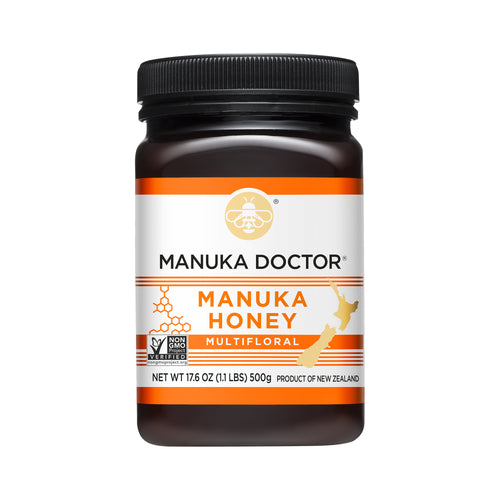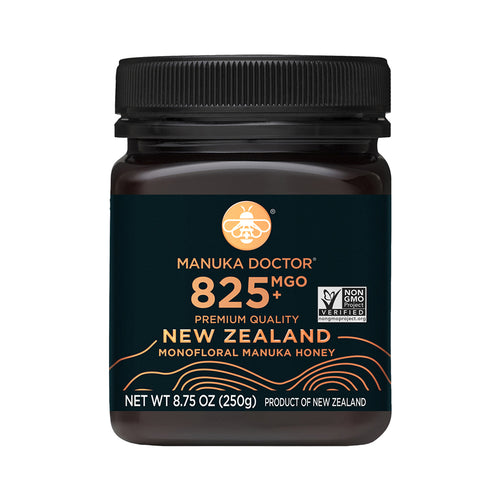Read Time: 3 minutes
Summary:
Winter can be tough on the body, but Manuka honey offers a natural way to support immunity, soothe sore throats, and protect overall wellbeing. With powerful antibacterial, antiviral, and anti-inflammatory properties, this versatile honey is packed with compounds like MGO and leptosperin that help fight infection and calm irritation. Easy to enjoy by the spoonful or stirred into your favorite winter recipes, it’s a delicious way to stay well through the colder months.
Manuka Honey: Your Winter Wellness Secret
Winter is a challenging time of the year for our bodies. The indoor heat and the cooler temperatures tend to dry out our skin. The recirculated air allows us to share our viruses and germs from one to the other causing a never ending assault on our immune systems. The constant grey weather can also make some people depressed or blue.
This secret is really versatile - it isn’t another nutritional supplement to add to the ones you may already be taking; it isn’t yet another plea to increase your exercise or get enough sleep - although those are two very important lifestyle interventions that will make anyone who does those two things well, a much healthier human.
In fact, this secret can be considered a food. It can be taken right out of the jar in a spoon; you can sip it into any warm drink without losing its potency, put in on a nice warm bowl of oatmeal or porridge; smear it on toast; incorporate it into your favorite recipes to enhance the flavor - the list of uses is pretty endless - just up to your imagination.
Try a new Manuka recipe today!

And the secret is - Manuka honey. Now, I am not saying to use an entire jar per day. It is honey after all and can affect your blood sugar but used in the right way, can really help to keep you healthy this winter.
Honey has been used to heal us for centuries - in fact, the use of honey in recorded history dates back to the year, 1392. This was to treat wounds which is still being studied today; but it was also believed to help in the fight bacterial infections.
The leaves of the Manuka tree, also known as a tea tree, have been known for centuries among the indigenous tribes of New Zealand for their healing powers.
Bees that collect nectar from this tree make Manuka honey, which has far superior healing properties than regular honey. All honey does contain antimicrobial properties, but Manuka honey also contains non-hydrogen peroxide, which gives makes it a stronger anti-bacterial.
Some studies have found Manuka honey can also help to boost production of the growth factors white blood cells need to fight infection and to heal tissue.
Inside Manuka
Manuka honey contains a number of natural chemicals that make it different:
● Methylglyoxal (MGO):
This has been shown to be effective against several different bacterial strains, including E.coli and salmonella.
● Dihydroxyacetone (DHA):
This is found in the nectar of Manuka flowers and converts into MGO during the honey production process.
● Leptosperin:
This is a naturally occurring chemical found in the nectar of Manuka plants and a few close relatives.
Manuka honey has been commonly used to soothe sore throats and coughs; and you should be able to see why. This particular type of honey has anti-bacterial, anti-microbial (meaning viruses and yeast) and anti-inflammatory properties that can help reduce swelling and also to kill germs on contact. Manuka honey can also create a mild coating on the throat which eases irritation, while killing bacteria at the same time.

The bottom line is really this: Manuka honey with its anti-oxidants, polyphenols and other compounds is perfectly suited to be an additional part of our winter armor - along with our coats, hats, scarves, boots, etc. And, better yet, we get to eat something that not only tastes good; but increases our health - not many foods can say that. Send me your favorite winter recipe using Manuka honey!
You can browse Manuka Doctor’s range of Genuine Manuka today – check out our special offers here.
Read more: How to read a Manuka honey label?




